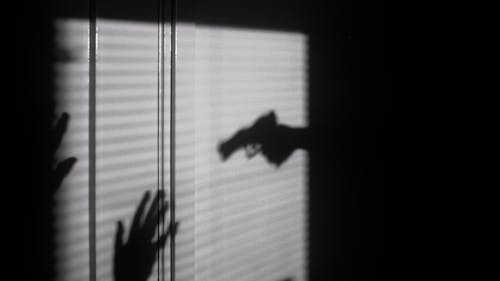EDITORIAL: Jennifer Crumbley's case: Parental responsibility is essential

This past Tuesday, Jennifer Crumbley, the mother of school shooter Ethan Crumbley, was found guilty of four counts of involuntary manslaughter, corresponding to the number of students tragically lost in Michigan's deadliest school shooting.
This conviction, marking the first instance in U.S. history where a parent has been held legally responsible for their child committing such an act, is a pivotal point in addressing gun violence, as well as the accountability of parents or guardians. But it also brings forward the larger societal failures associated with gun violence and the consequent challenges of attributing this legal responsibility.
In this case, Jennifer Crumbley's conviction stemmed from neglect of her son and his mental health, ultimately leading to the devastating school shooting.
For the jury to convict Jennifer Crumbley, it required the consensus that she exhibited gross negligence by improperly storing and securing the firearm, or that she, as a parent, had failed to uphold a "legal duty" to prevent her son from inflicting harm on others. This conviction emerges amid the backdrop of recent instances where the parents of children who committed acts of gun violence have pled guilty to charges of reckless conduct or neglect. Certain prosecutors have begun an effort to hold parents responsible when there is a suspicion that they may have facilitated their children's involvement in these criminal acts.
The conviction in cases like this also raises concerns about the potential for disproportionately affecting vulnerable or marginalized families. In cases where culpability is not clear-cut, the persisting problem of racial bias in jury selection can influence outcomes, which in turn could lead to a disparity in who faces conviction.
Families from lower socioeconomic backgrounds might also be at a greater disadvantage when held accountable for their child's actions due to a lack of resources and access to the necessary support for themselves and their children.
Experts in gun safety have expressed their hope that the outcomes of the Crumbley trials will help parents nationwide realize the necessity of securing firearms more diligently within their homes. Government research indicates that approximately 75 percent of school shooters acquired the guns used in their attacks from their own homes.
The obligation should rest with the individual who purchases the gun to ensure that it is securely locked away in a place that is inaccessible to children. No child should have access to a gun, and, consequently, any actions undertaken with that gun are directly attributed to its buyer.
Tuesday's guilty verdict helps to set a precedent for extending legal responsibility beyond the perpetrators themselves and for the scope of accountability for school or mass shootings. This development is particularly poignant in scenarios where the shooter is deceased, leaving communities struggling for closure and justice.
But the extension of accountability leads to questions about the foundational principle in the U.S. that individuals are responsible for their own actions. If a parent can be held responsible, should schools like Ethan Crumbley's, which found disturbing drawings and messages from him, also face the same scrutiny for failing to act upon warning signs?
This dilemma points to a slippery slope where determining the lines at which responsibility begins and ends becomes increasingly difficult. The balance between the principle of personal responsibility and the reality that actions are often influenced by the behavior and decisions of those in a position of guardianship is a delicate one.
Each case must be evaluated individually in order to consider the specific circumstances and actions of all who were involved by drawing clear legal and ethical boundaries. Ensuring that justice is served without unreasonably broadening the net of accountability requires careful navigation of these murky waters.
These considerations help to bring to light the broader societal challenges that lie beneath the issue of school shootings in the U.S. Improving mental health care, enhancing support systems for families and challenging the cultural norms that glorify violence are just some of the reforms that should be implemented to address the root causes that lead to such tragedies, rather than simply aiming to regulate firearm access.
With the trial of James Crumbley, Ethan Crumbley's father, beginning Thursday, this case should serve as a wake-up call for comprehensive reform. It emphasizes that while individual accountability is crucial, it is not a substitute for solutions to gun violence that extend to the system itself. This is a reminder that making schools secure environments for education rather than fear requires collective efforts to ensure the safety of our children.
The Daily Targum's editorials represent the views of the majority of the 156th editorial board. Columns, cartoons and letters do not necessarily reflect the views of the Targum Publishing Company or its staff.



